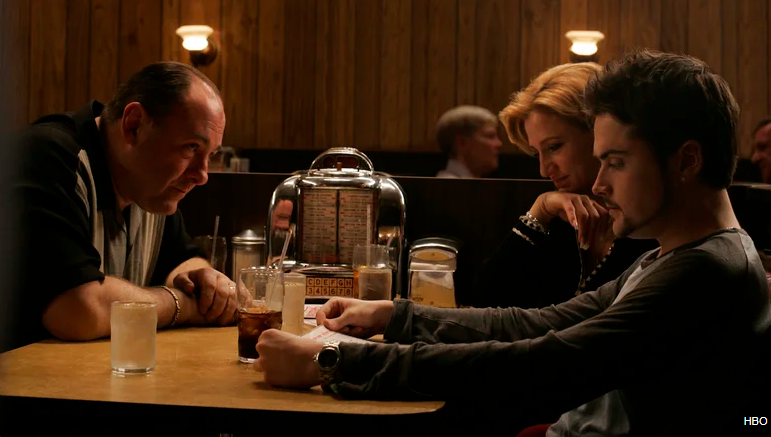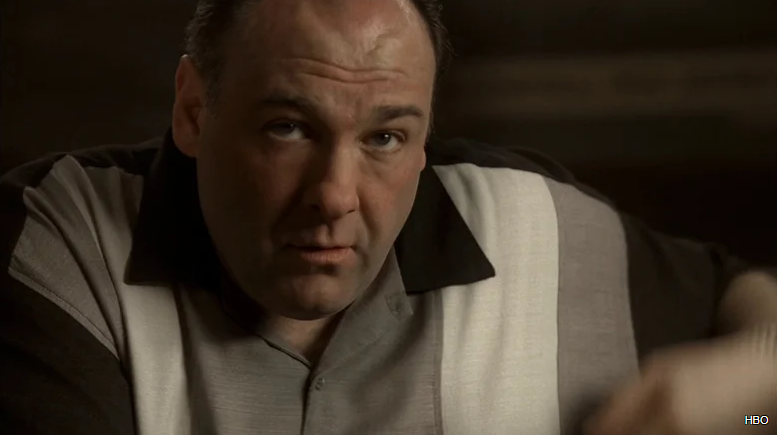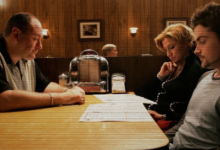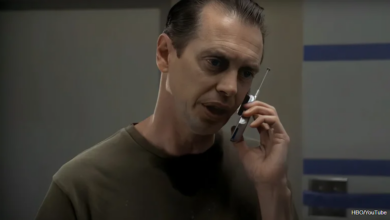The Sopranos Ending Was Intended To Throw You Off

It’s been nearly two decades since the series finale of “The Sopranos” aired, and a lot of people still haven’t gotten over the infamous, and arguably ingenious cut to black that brought the saga to a close. That shocking, series-ending moment remains one of the biggest, swing-for-the-fences sort of finales in the history of television. And yes, it’s rightfully remained a lightning-rod for discussion in the pop culture zeitgeist, with lovers embracing the haunting ambiguity, and haters feigning frustration at the lack of finality, even as the specter of death is clearly closing in on Tony Soprano (James Gandolfini) and his brood.
Hilariously, both factions have also copped to believing that their televisions had blinked out on them when that cut to black first happened. The excruciating silence that immediately followed only added to the confusion. And people have indeed been debating the merits of the series’ ending since the moment the credits began to roll, confirming the rug-pulling blackout was intentional.
To their credit, several key creatives from “The Sopranos” have spoken candidly over the years about the final masterstroke David Chase applied to his groundbreaking mobster opus. That includes longtime series writer and producer Terence Winter, who admitted during a recent interview he genuinely didn’t expect the finale to be as divisive as it was. But he also admitted it was very much designed to throw viewers off.
The Sopranos’ creative team set out to do something unexpected with the series finale

Terence Winter made that admission during a recent appearance on The Rich Eisen Show. In discussing his tenure on “The Sopranos,” Winter further professed to being very much on board with David Chase’s idea for the finale, telling Eisen, “I thought it was really cool.” Winter goes on to claim Chase had always pushed his writers to find ways to keep viewers off-balance, stating, “At that point, I was sort of programmed to try and look at storytelling the way David did, like, ‘Let’s do something unexpected. Let’s go the opposite way of what you think is going to happen.'” Per Winter, such tactics are necessary, in part, because audiences are savvier than ever in regards to the way filmmakers tell stories, adding that if you want to stay ahead of the audience, “you’re always trying to find a different way in.”
Of course, Chase’s concept for “The Sopranos” finale wasn’t just different, it was downright radical. And it had exactly the intended impact on “The Sopranos” fans, with Winter detailing his own first-hand account of post-finale chaos after watching it live with his extended family. “They turned on me like a pack of wolves, ‘What the hell was that?,'” he said laughing, before adding, “I did not expect that.” Even if he was out to throw fans of “The Sopranos” for a loop, Chase likely didn’t expect such backlash either. But whether you loved or loathed that finale, the fact that we’re still talking about it like it just aired is testament enough that “The Sopranos” couldn’t, and really shouldn’t have ended any other way.


